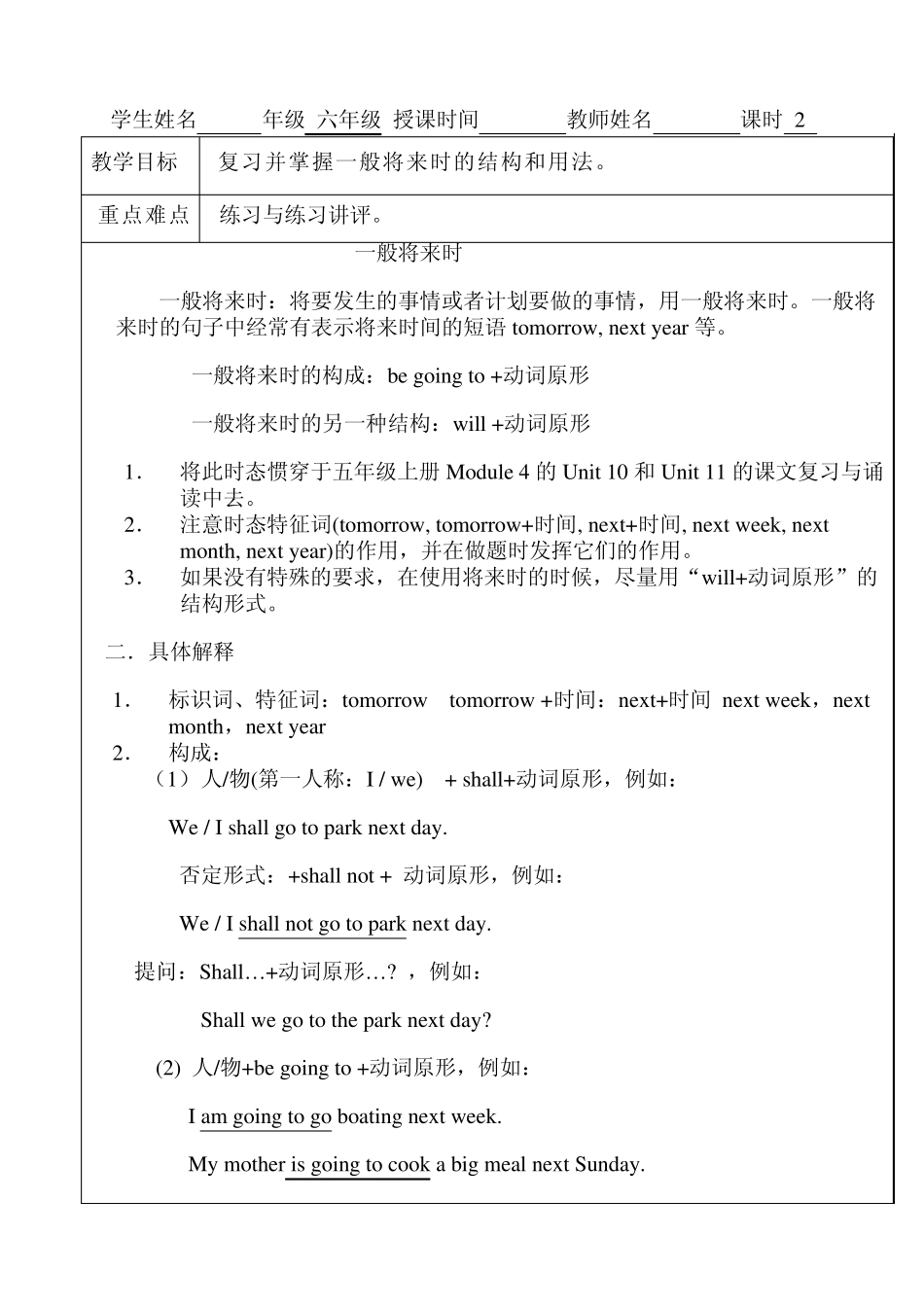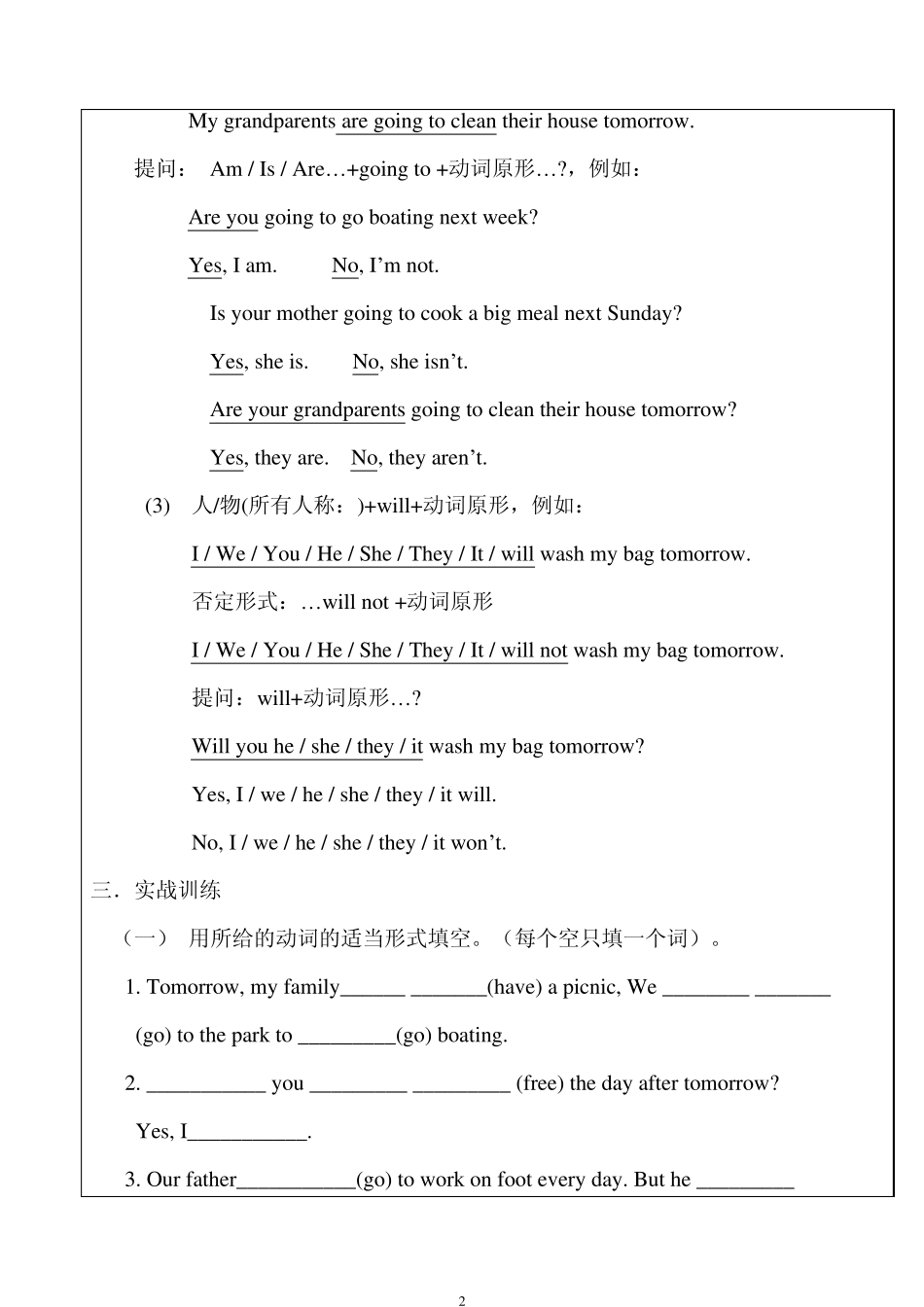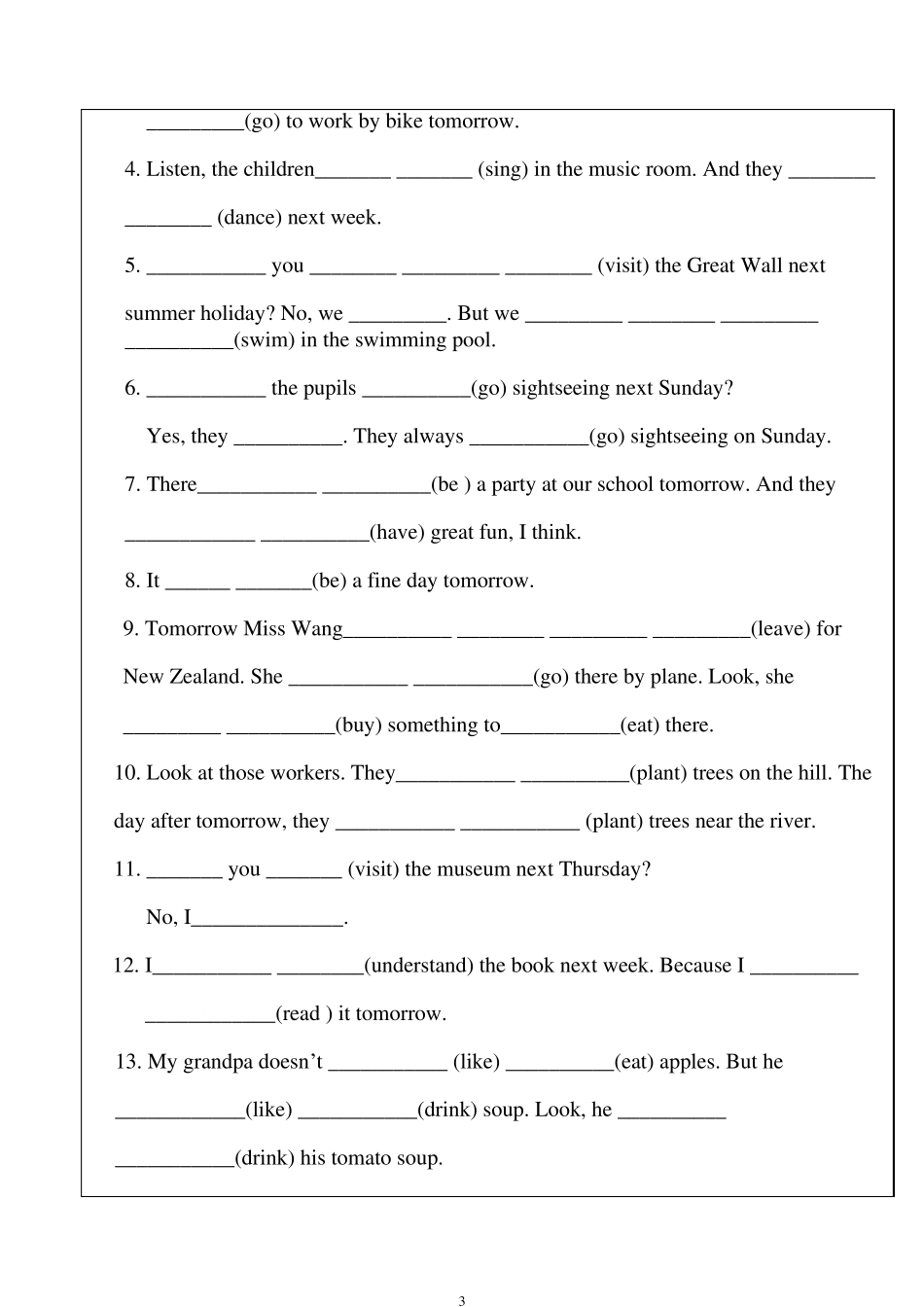学生姓名 年级 六年级 授课时间 教师姓名 课时 2 教学目标 复习并掌握一般将来时的结构和用法。 重点难点 练习与练习讲评。 一般将来时 一般将来时:将要发生的事情或者计划要做的事情,用一般将来时。一般将来时的句子中经常有表示将来时间的短语tomorrow, next year 等。 一般将来时的构成:be going to +动词原形 一般将来时的另一种结构:will +动词原形 1. 将此时态惯穿于五年级上册Module 4 的Unit 10 和Unit 11 的课文复习与诵读中去。 2. 注意时态特征词(tomorrow, tomorrow+时间, next+时间, next week, next month, next year)的作用,并在做题时发挥它们的作用。 3. 如果没有特殊的要求,在使用将来时的时候,尽量用“will+动词原形”的结构形式。 二.具体解释 1. 标识词、特征词:tomorrow tomorrow +时间:next+时间 next week,next month,next year 2. 构成: (1) 人/物(第一人称:I / we) + shall+动词原形,例如: We / I shall go to park next day. 否定形式:+shall not + 动词原形,例如: We / I shall not go to park next day. 提问:Shall…+动词原形…? ,例如: Shall we go to the park next day? (2) 人/物+be going to +动词原形,例如: I am going to go boating next week. My mother is going to cook a big meal next Sunday. 2 My grandparents are going to clean their house tomorrow. 提问: Am / Is / Are…+going to +动词原形…?,例如: Are you going to go boating next week? Yes, I am. No, I’m not. Is your mother going to cook a big meal next Sunday? Yes, she is. No, she isn’t. Are your grandparents going to clean their house tomorrow? Yes, they are. No, they aren’t. (3) 人/物(所有人称:)+will+动词原形,例如: I / We / You / He / She / They / It / will wash my bag tomorrow. 否定形式:…will not +动词原形 I / We / You / He / She / They / It / will not wash my bag tomorrow. 提问:will+动词原形…? Will you he / she / they / it wash my bag tomorrow? Yes, I / we / he / she / ...


